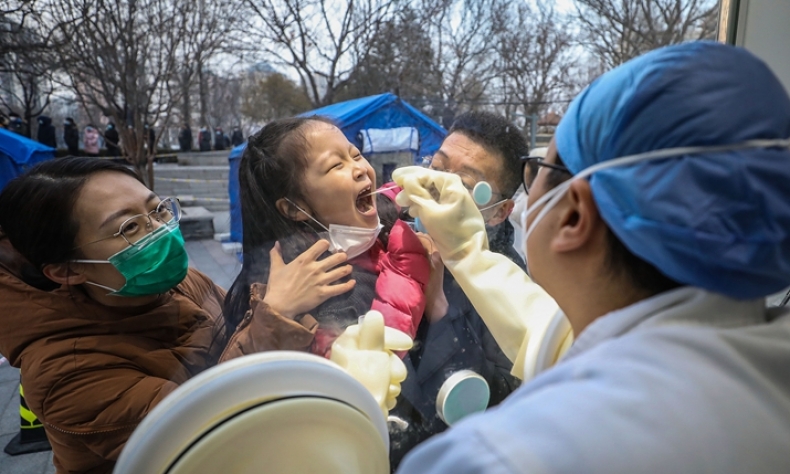Lines of Life

I would love to stand in another line this year. For the vaccine.
My first experience of standing in a line for public medical care was when I was a baby in my mother’s arm. So it was actually she who stood in the line so that I could get the free vaccination for measles and some other diseases. I remember it even after decades because it was painful. The medical worker made two incisions on the arm and a lot of the kids started bawling in shocked protest. During the week the cuts swelled up and then subsided, leaving two white unseemly scars.
A better experience of standing in a line occurred when I became eligible to vote. Since my country, India, is a semi-federal republic, elections are held every five years, one to choose a government at the center and another one at the provincial level. If there’s an emergency, like the assassination of Prime Minister Indira Gandhi in 1984, there are snap elections.
The atmosphere in the election line is different, almost festive. Neighbors go together and in the line you discover other acquaintances or make new ones. The time spent waiting passes easily as people discuss everything under the sun, from the election results to the new blockbuster film.
So when I stood in a line once again in Beijing this January, it gave me a sense of déjà vu. The district where I live was holding free nucleic acid tests to screen novel coronavirus disease cases and on being informed, I took my place dutifully in the line.
This was my third test, so I was no longer the jittery thing waiting in the same line at the same public square last year but a seasoned hand. Instead of feeling nervous, I could look around me and appreciate the improvements.
The mass screenings have been a model of organization, even when they first started last year. Before the tests, diligent volunteers pasted pink notices in every residential communities, shops and organizations to let people know. The square in our district was divided into several sections with geometric precision so that several lines could proceed together. There were white chalk marks on the ground to ensure distancing and the lines culminated at a long marquee where health workers in protective suits sat at their tables.
Before you joined your line according to your address, a primary team of volunteers directed you which one to join. Each line was headed by a leader holding aloft a banner much the way tour guides do in China. And despite tens of thousands of people taking the test, the place was spotlessly clean.
Just like in India, I got into conversation with the woman standing in front of me with her son. I discovered we worked for the same organization. She was from Liaoning Province, northeast China, but wouldn’t be traveling there to celebrate Spring Festival since her parents were already in Beijing.
She worried when she found my health app, a little different from the Chinese one, had no provision for registering for the test. So though we had nearly waited for two hours, my gold-hearted new friend stayed with me till it was my turn to translate for me if there were any difficulties.
There were none. Last year, when this was new, the administrators needed me to show my passport and then stuck something on it. This time they whisked out a hand-held device, similar to the ones we used at the malls to pay with our bank cards till the QR code took over. I had to input my name, passport number and telephone number and voila, I got a code for registering.
Progressing further, I found last year’s marquee with the desks gone. Instead, there were little enclosed kiosks that gave greater protection to the health workers sitting inside. And their expertise had really grown. The kiosk front had a small circular opening. We simply went near that and opened our mouth and the throat swab was taken in seconds.
That was not all. Last year, I asked our line leader when we would know the results. “You will hear from the authorities only if something is wrong,” was the not-very reassuring answer.
So this year, I was prepared to wait once again in a state of trepidation. To my surprise and joy, I received a text message that very evening. “Negative,” it said.
I would love to stand in another line this year. For the vaccine.
The author is an editorial consultant with Beijing Review.
 Facebook
Facebook
 Twitter
Twitter
 Linkedin
Linkedin
 Google +
Google +










